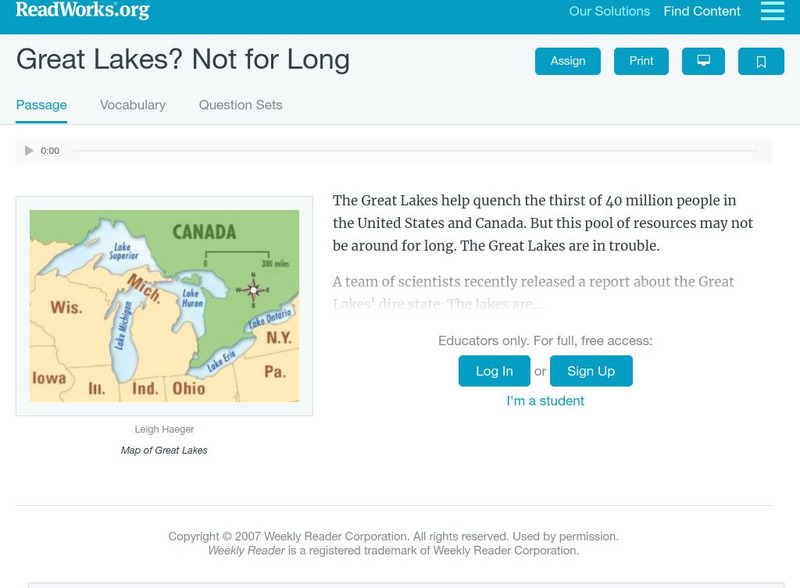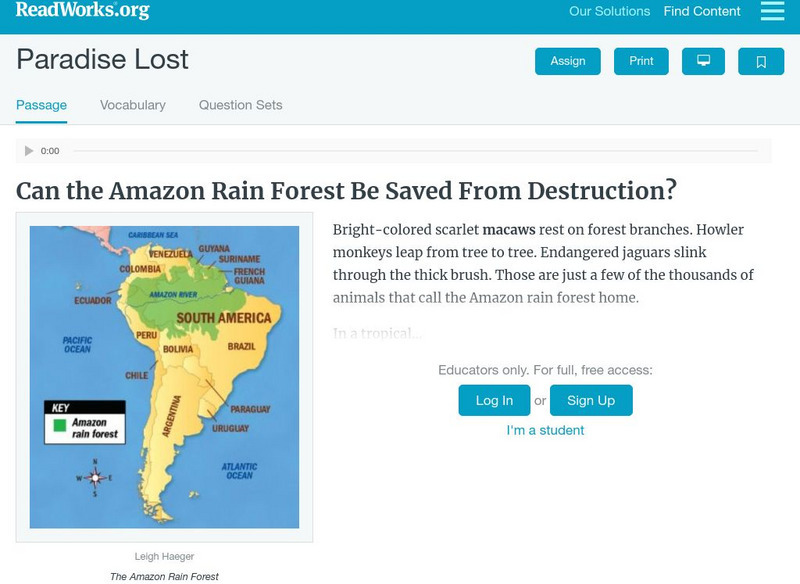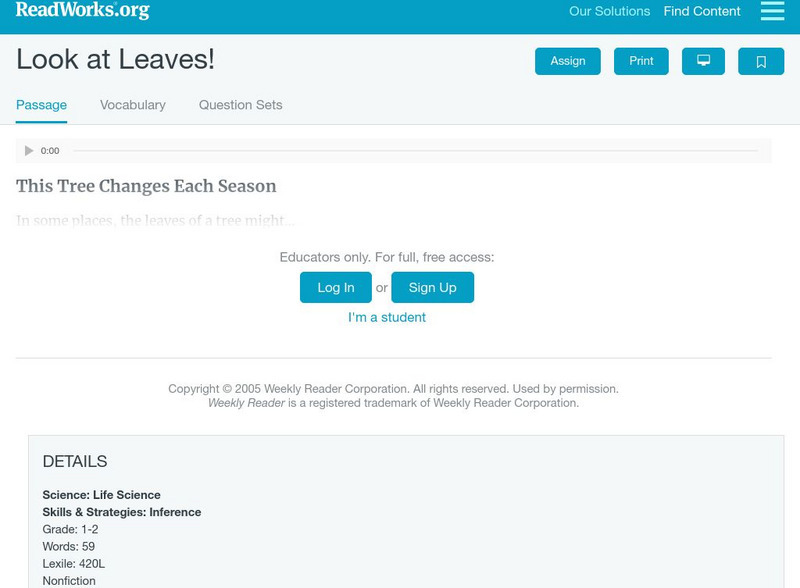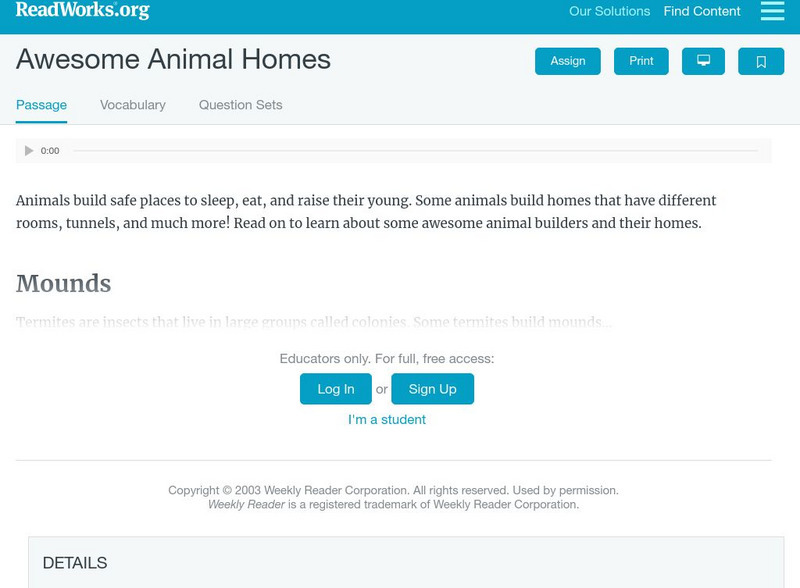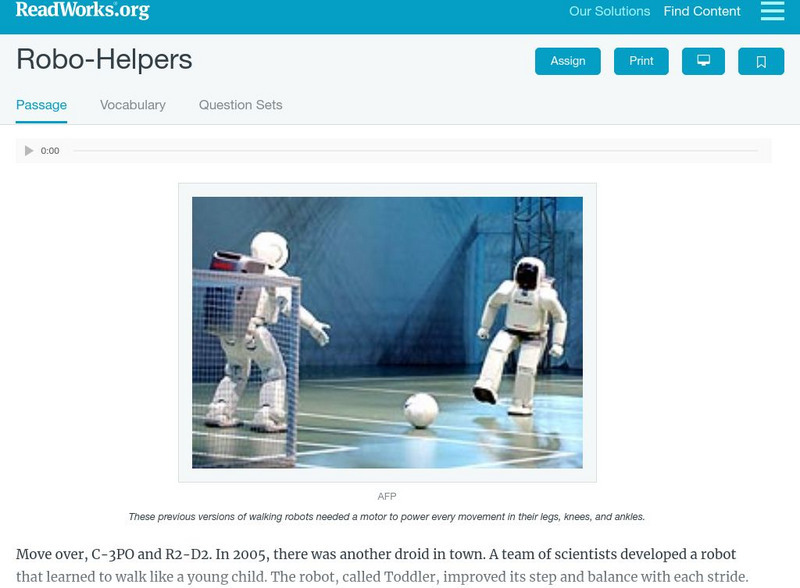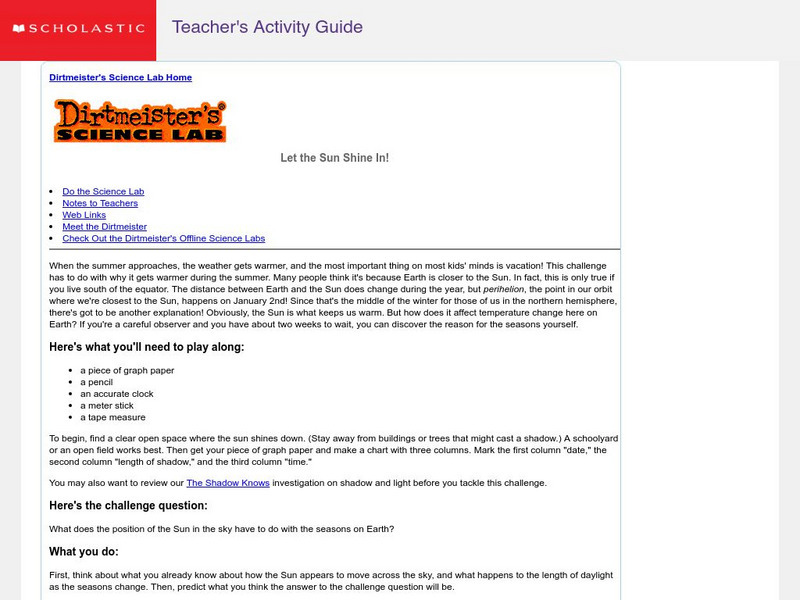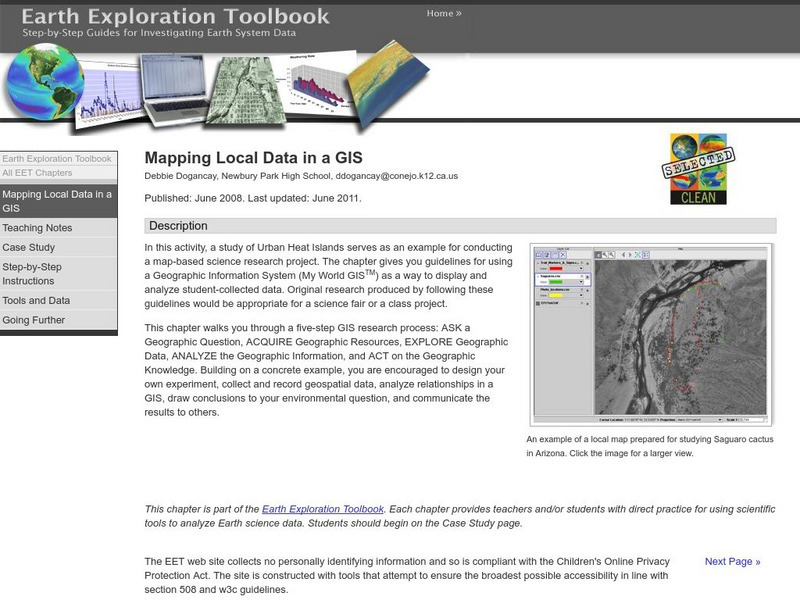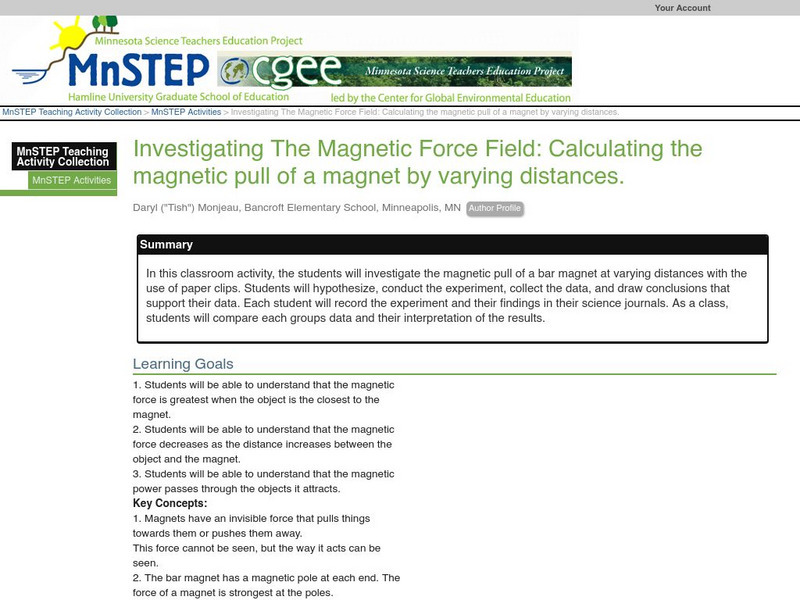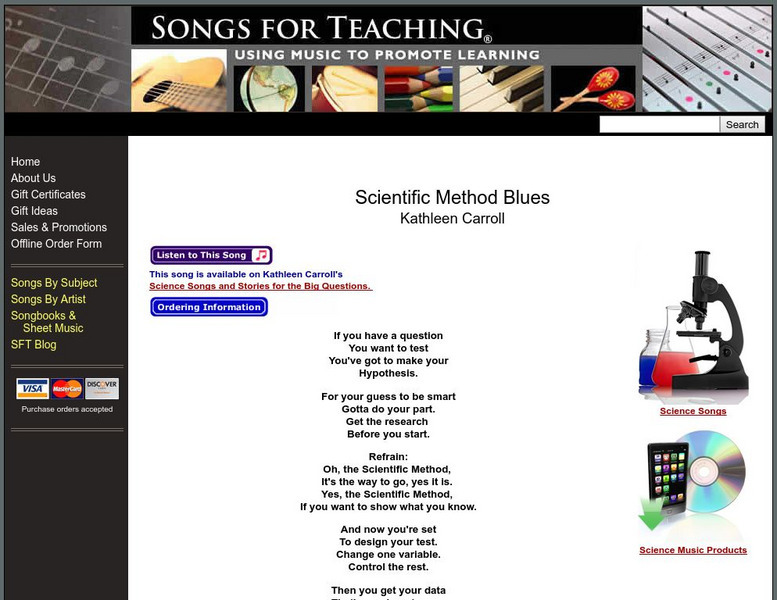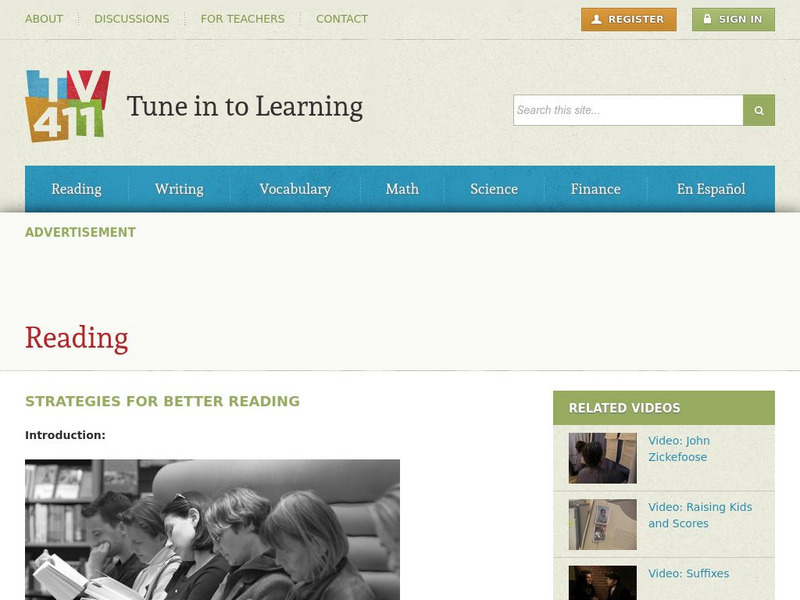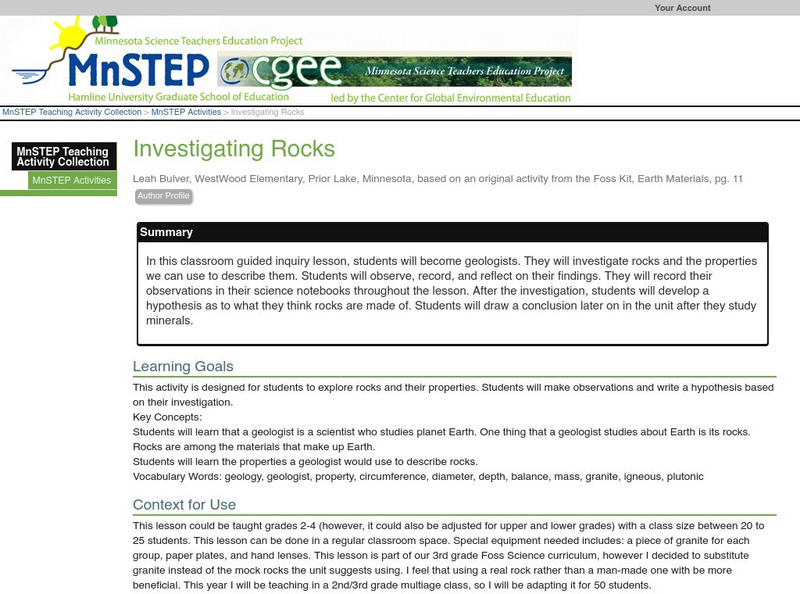Read Works
Read Works: Rain Forest Rescue
[Free Registration/Login Required] Students read about how the Amazon rain forest and how Brazil is trying to protect it. A question sheet is available to help students build skills in drawing conclusions.
Read Works
Read Works: Great Lakes
[Free Registration/Login Required] Students read about environmental issues causing problems for the Great Lakes. A question sheet is available to help students build skills in drawing conclusions.
Read Works
Read Works: Paradise Lost
[Free Registration/Login Required] Students read about how the Amazon rain forest and some of the animals living there. A question sheet is available to help students build skills in drawing conclusions.
Read Works
Read Works: Look at Leaves
[Free Registration/Login Required] Students read about how the leaves on trees change from season to season. A question sheet is available to help students build skills in drawing conclusions.
Read Works
Read Works: Super Survival Skills
[Free Registration/Login Required] Students read about how different types of fish are able to defend themselves and survive in their environments. A question sheet is available to help students build skills in drawing conclusions.
Read Works
Read Works: Awesome Animal Homes
[Free Registration/Login Required] Students read about how different types of animal homes, including mounds, nests, burrows, and lodges. A question sheet is available to help students build skills in drawing conclusions.
Read Works
Read Works: Spiders and a Balanced Diet
[Free Registration/Login Required] Students read about how spiders choose to eat a balanced diet. A question sheet is available to help students build skills in drawing conclusions.
Read Works
Read Works: Robo Helpers
[Free Registration/Login Required] Students read about new robots that learn to walk like humans. A question sheet is available to help students build skills in drawing conclusions.
Scholastic
Scholastic: Dirtmeister's Science Lab: Let the Sun Shine In
Students graph data reflecting time of day and length of shadow, and then draw conclusions about Earth's seasons and position in relation to the Sun.
Science Education Resource Center at Carleton College
Serc: Mapping Local Data in a Gis
In this activity, students will learn how to conduct a map-based science research project using a Geographic Information System (GIS). They will design an experiment, collect and record geospatial data, analyze geospatial relationships...
National Health Museum
Access Excellence: The Blackout Syndrome
Become a medical investigator trying to solve the cause of a mysterious disease. Through a four-part mystery series, students try to figure out the source of the disease and how to treat it. By reading clues students make predictions and...
PBS
Pbs Learning Media: Disappearance of the Bees What's the Impact?
The disappearance of bees will have tremendous impact upon the way we live according to scientists in this segment from Nature.
PBS
Pbs Learning Media: Colony Collapse Disorder
In this video segment from Nature, scientists work to discover why bees are disappearing. [2:39]
Science Education Resource Center at Carleton College
Serc: Investigating the Magnetic Force Field: Calculating Magnetic Pull
In this classroom activity, the students will investigate the magnetic pull of a bar magnet at varying distances with the use of paper clips. Students will hypothesize, conduct the experiment, collect the data, and draw conclusions that...
Physics World
Physics World: Contextual Physics in Ocean Park
After downloading the "Motion Video Analysis" software, users can collect data about moving object's position from digital movie clips. This collection of data will allow them to plot motion graphs and draw conclusions about physics in...
City University of New York
Scientific Method and Probability: Interactive Activity
This interactive lesson begins with the basics and carries through to methods of data analysis, all interactively. Supporting material is excellent.
PBS
Pbs Learning Media: Your Brain and Moral Decision Making
In this segment from Curious, scientists conduct an experiment to learn how different areas of the brain are stimulated when making moral decisions.
PBS
Pbs Learning Media: Everglades
In this video segment from WILD TV, a scientist in the Florida Everglades talks about her research on the pig frog. [6:25]
University of Washington
Washington U: Model for Conducting Scientific Research
This page outlines the scientific method, step by step.
Curated OER
Science Kids: Science Images: Abrictosaurus
This drawing shows the possible appearance of Abrictosaurus, a dinosaur from the early Jurassic Period (around 200 million years ago) that weighed around 45 kg (100 lb) and reached around 1.2 m (4 ft) in length. The fossil remains of...
Songs for Teaching
Songs for Teaching: Scientific Method Blues
This lesson introduces the scientific method to your students through song. Students will learn the steps of the scientific method through this great song written by Kathleen Carroll. Click on the link and play it for your whole class.
Education Development Center
Tv411: Tune in for Reading: Reading: Strategies for Better Reading
Self-checking interactive tutorial puts reading comprehension skills to work by asking learners to make inferences, predict what happens next, and identify the main ideas in a series of short reading passages. Related materials include...
Science Education Resource Center at Carleton College
Serc: Investigating Sound: A Lesson in Length and Pitch
In this classroom guided inquiry lesson, students will rotate through five stations of various sound instruments to look at how length affects pitch. The five sound stations include: straw flutes, xylophone, water phone, palm pipes, and...
Science Education Resource Center at Carleton College
Serc: Investigating Rocks
In this classroom guided inquiry lesson, learners will become geologists. They will investigate rocks and the properties we can use to describe them. Students will observe, record, and reflect on their findings. They will record their...

